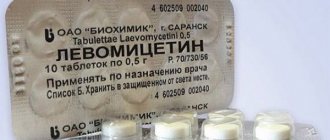Causes
Morning diarrhea occurs for the following reasons:
- gastrointestinal diseases such as ulcers, gastritis, colitis, etc.;
- enzyme deficiency;
- improper functioning of the digestive system;
- dysbacteriosis;
- food poisoning;
- disrupted diet;
- reaction to medications;
- vitamin deficiency;
- helminthic infestations;
- emotional, nervous overstrain.
Problems in the digestive tract are a common cause of morning diarrhea.
This can be influenced by a huge number of factors, for example, even alcohol drunk the night before can cause diarrhea in the morning. Eating unhealthy foods or drinking highly carbonated drinks can also cause morning diarrhea.
If colon cancer develops, this may cause loose stools in the morning. The presence of diseases associated with the gallbladder leads to a limitation of the flow of bile acid into the gastrointestinal tract, disrupts its functioning and causes intestinal upset.
Diagnostics
To determine the cause of stool disorder, the following diagnostic methods are used:
- Examination by a gynecologist and urologist;
- Physical examination;
- Fecal analysis (worm eggs, coprogram, dysbacteriosis, occult blood);
- Biopsy;
- Ultrasound diagnostics of the digestive organs.
If during these examinations no deviation from the norm is found, the patient is recommended to consult a psychotherapist. Because diarrhea can be the cause of a person's emotional state.
Associated symptoms
The most common symptoms of functional morning diarrhea are:
- pasty, soft or watery stools;
- more than 3 bowel movements per day;
- imperative urge to defecate.
The amount of watery or liquid stool should exceed 75% of the total number of bowel movements.
Other symptoms, which are present in one in three patients, include:
- feeling of incomplete emptying after bowel movement;
- feeling of fullness in the stomach, bloating;
- mucus impurities in feces.
What could be the consequences?
Ignoring the symptoms of diarrhea is unacceptable, especially if the disease tends to recur systematically. One of the most common consequences of morning diarrhea is a change in water and electrolyte balance. Due to repeated diarrhea, the required level of fluid in the body decreases, and the amount of beneficial cations and anions decreases. This, of course, can lead to dehydration and disruption of the functioning of important systems.
In addition to dehydration, the consequences of systematic diarrhea can be:
- orthostatic collapse;
- kidney failure;
- acidosis;
- a decrease in the level of potassium in the blood, which can lead to disruption of the cardiovascular system.
Which doctor is treating you?
The following specialists are involved in the diagnosis and treatment of pathology:
- A gastroenterologist is a doctor who treats gastrointestinal problems.
- An infectious disease specialist treats acute pathologies caused by pathogenic microorganisms or their toxins.
- A nutritionist helps patients normalize their diet.
- An allergist deals with diarrhea of allergic origin and determines foods that are unacceptable for consumption.
- A pediatrician is a general practitioner who treats most types of diarrhea in children.
Prevention
Like any other disease, morning diarrhea is easier to prevent than to treat its consequences. To prevent diarrhea, it is recommended to adhere to the following recommendations:
- maintaining personal hygiene, washing hands;
- stop eating products of questionable quality;
- wash all fruits, vegetables, meat before cooking;
- during a seasonal decrease in immunity (spring, autumn), it is necessary to carry out prophylaxis by taking vitamins;
- reduction in the diet of products of synthetic origin.
Following these simple rules can protect you from food poisoning or infection. It must be remembered that prevention is one of the keys to good health.
Diagnostic techniques
If morning diarrhea has become chronic, consider seeing a doctor and undergoing diagnostics, which consists of the following methods:
- Coprogram - examination of stool to diagnose diseases of the digestive system.
- X-ray examination of the stomach and small intestine is a procedure that is performed using a contrast agent and a computed tomograph.
- Feces for dysbacteriosis. The concentration and ratio of beneficial and pathogenic microorganisms is assessed.
- Sigmoidoscopy is a diagnostic method consisting of a visual examination of the rectal mucosa.
- General blood and urine tests.
- Dopplerography of the abdominal organs helps to study the size and configuration of organs and obtain data on blood flow in the areas under study.
- Feces for occult blood help determine the presence of bleeding from parts of the digestive tract.
- Ballonography is a method for studying the motor function of the gastrointestinal tract, based on recording pressure changes using a probe with an air balloon at the end.
- Enterography is a minimally invasive diagnostic method that makes it possible to obtain a detailed image of the patient’s small intestine.
- Bacteriological analysis of stool is a universal analysis that determines the causes of intestinal infection.
What determines the color of diarrhea?
Stool staining will help determine the cause of the disease before test results are ready.
The yellow color of stool is caused by excessively rapid passage through the intestines. If the temperature rises, it means that an infection has entered the body. In addition, this coloration of morning diarrhea can appear due to viral hepatitis or taking certain medications. White color and the presence of undigested pieces of food are a sign of disturbances in the functioning of the pancreas and liver. In infants, this color may appear after the introduction of complementary foods, during teething. Green color and presence of mucus indicates fermentation or bacterial infection. At the same time, feces have a sharp, unpleasant odor. This color can also be a sign of liver problems. Black-brown diarrhea is a symptom of bleeding in the upper gastrointestinal tract. Perhaps an ulcer has opened. Also, this color appears when taking activated carbon, blueberries, medications containing bismuth, iron. Bright red or cherry-colored stool indicates bleeding in the large intestine. It may cause anal fissure and hemorrhoids. Foamy stools with a sour smell are a sign of fermentative dyspepsia.
In most cases, morning diarrhea goes away after 3 days.
But if this does not happen, or there is a fever, severe pain, vomiting, there are signs of bleeding or dehydration, or there is pus in the stool, consult a doctor as soon as possible.
Treatment options
Morning diarrhea is a symptom of many diseases, therefore, in the choice of medical tactics, the main role is played by the identification and treatment of the underlying pathology.
Now there is a huge selection of drugs that help fight intestinal disorders. In addition to this, proper nutrition and the use of folk remedies are added.
How to get rid of diarrhea at home - the next article will tell you about this.
Diet
Foods you can eat for diarrhea:
- lean meat, skinless poultry;
- wheat bread crackers;
- unleavened cottage cheese;
- steam cutlets;
- minced meat with boiled rice;
- lean types of fish;
- pureed porridge cooked in water or broth;
- scrambled eggs;
- jelly and jelly;
- apples;
- green tea.
Foods that should not be eaten:
- fatty broths;
- soups with pasta, cereals;
- fatty meats;
- sausages and smoked meats;
- fatty and salted fish;
- canned food;
- legumes;
- pasta;
- barley groats;
- fried eggs;
- sauces, spices;
- fruits and berries in their natural form;
- honey;
- sweet.
Taking medications
For diarrhea, the following groups of drugs are prescribed:
- Probiotics are used to relieve symptoms of dysbiosis, one of which is diarrhea. Restores the balance of microorganisms, which leads to normalization of stool. This group includes:
- Linex - capsules for normalizing intestinal microflora, price - 400 rubles;
- Bifidumbacterin - powder in foil bags, normalizes the activity of the gastrointestinal tract, price - from 80 rubles;
- Bifikol - ampoules or bottles, 3 doses each, antimicrobial drug, price - from 200 rubles;
- Hilak Forte - drops in bottles of 30 or 100 ml, accelerates the absorption of food, does not allow pathogenic flora to spread, price - from 200 rubles.
- Drugs to slow down peristalsis:
- Imodium – capsules, blocks opioid receptors, price – from 250 rubles;
- Loperamide - tablets that dissolve in water, reduce intestinal motility, price - from 25 rubles;
- Enterobene - tablets for diarrhea, price - from 180 rubles.
- Antibiotics:
- Levomycetin – tablets, powder, price – from 76 rubles;
- Amoxicillin – tablets, powder, price – from 27 rubles;
- Metronidazole - tablets, solution for infusion, has antimicrobial and antiprotozoal effects, price - from 40 rubles.
- Enterosorbents:
- Activated carbon - tablets, powder, the most effective remedy for diarrhea, which absorbs toxins, price - from 10 rubles;
- Smecta is a powder for preparing a suspension, a drug with an adsorbing effect, price – from 130 rubles.
A review of inexpensive but effective anti-diarrhea tablets can be found here.
Traditional methods
Prolonged diarrhea in the morning requires medical attention, but in the first days you can try to cope with the disease yourself, using folk remedies for diarrhea. Herbal treatment relieves inflammation and soothes irritated bowels.
The role of saving bacteria will be played by homemade yogurt prepared without any additives. It is recommended, first of all, for the treatment of morning diarrhea after antibiotics, when diarrhea occurs against the background of damaged microflora.
You can also use the following recipes for diarrhea:
- Rice water. Pour 1 glass of rice into 7 glasses of water, cook until fully cooked, strain through a sieve or cheesecloth.
The resulting liquid should be taken 100 ml every 2 hours. Read about the peculiarities of using rice water in the treatment of diarrhea in a child in the following article. - Starch solution. Take 1 teaspoon of starch and dilute it in half a glass of cold water. Can also be brewed as jelly. Take a glass 2-3 times a day.
- Blueberry tea. Pour boiling water over a handful of dried berries, bring to a boil and simmer over low heat for 5 minutes. Drink tea with berries 3 times a day.
- Blackberry leaves. Take 2 tbsp. l. chopped blackberry leaves, pour a glass of boiling water, boil for about 5 minutes, let cool and strain. Take half a glass 4 times a day.
- Alcohol tincture of walnut partitions . This product has a strong adhesive effect. Pour 250 ml of vodka over 300 g of nuts and leave in a dark place for 2 days. You need to take the medicine 6-9 drops diluted in 100 ml of water 4 times a day until the diarrhea stops completely.
- Seeds. Take a glass of fried seeds, pour 2 glasses of hot water and put on fire until the amount of the mixture is reduced by half, then remove from the stove and strain. Adults should take half a glass, and children should take 1 tbsp. l.
- Pomegranate peels. You can make a decoction from pomegranate peel. For this you need 2 tbsp. l. dried peel, add 500 ml of water, bring to a boil and cook in a sealed container for 15 minutes. Take 1 teaspoon of decoction 3 times a day 20 minutes before meals.
Some remedies offered by traditional medicine can lead to constipation, so be careful when choosing a home remedy and better consult your doctor before using it.
What is important to know
When diarrhea begins in an adult in the morning, it is important to correctly determine the cause of the unpleasant phenomenon and correct the situation as soon as possible. Any treatment for diarrhea should be based on several principles:
- Restoration of water-salt balance.
- Normalization of intestinal motility.
- The use of drugs that do not directly affect the intestines.
We recommend: Can diarrhea occur with a stomach ulcer?
In any case, daily diarrhea can lead to dehydration. Liquid feces contain a lot of water, salts and trace elements that are important for normal life. Therefore, it is important to take rehydration measures first. To do this, the patient is given plenty of fluids. Pure water and herbal teas are suitable. Patients are given salted and sweetened water alternately. You can use special solutions, for example “Regidron”.
When diarrhea is severe, you can protect the body by taking medications that slow down the passage of fluid through the intestines. This could be Loperamide or Imodium. It is important to note that these products are not used for food poisoning, infectious diseases and parasitic diseases.
Medicinal medications that do not affect the intestines as an organ are sorbents. These include Enterosgel, Atoxil, Activated Carbon and White Coal. Passing through the digestive tract, the drug attracts all toxic compounds without affecting its walls. Diarrhea stops on its own due to a decrease in the level of intoxication.
Diarrhea after breakfast
The excretory system in the body plays a vital role; it removes excess fluid, toxic substances, and waste products.
It is considered normal when 200 grams of feces are released from the body of a healthy person.
When the stool changes and becomes liquid with admixtures of blood, pus and a specific odor, this indicates that serious disturbances have occurred in the gastrointestinal tract or intoxication.
Diarrhea is accompanied by the following symptoms:
- bloating;
- nausea, vomiting;
- fever, chills;
- fatigue, weakness;
- fullness in the abdominal cavity;
- acute spasms (in chronic form).
In acute viral infections, nausea and frequent vomiting are observed. Bacterial and viral infections are accompanied by a sharp rise in temperature and frequent headaches.
Consequences of morning diarrhea
Dehydration can lead to serious consequences if not addressed promptly. You should not take diarrhea in the morning as a normal occurrence. It is not normal. The reason may lie in pathologies that require urgent treatment. A person loses a large amount of fluid, and when dehydrated, a dry mouth and severe thirst are felt.
The complexion becomes pale, and some stages of dehydration require immediate medical attention. The heartbeat is disrupted, and the person begins to suffer from lack of air, which indicates a large loss of salt. A lack of nutrients causes headaches, brittleness and hair loss, and the functioning of the immune system is disrupted.
Causes of diarrhea
Morning diarrhea can be acute or chronic; the second type includes diarrhea that does not go away within 1–1.5 months.
Causes of chronic diarrhea in the morning can be:
- diseases of the digestive system;
- pancreas pathology;
- damage to the digestive tract by parasites;
- allergic reaction;
- infectious intestinal diseases.
One-time problems with bowel movements are not so dangerous; the cause of their occurrence can be identified independently, as well as the problem can be solved. The body may respond in this way to laxative medications. Side effects are usually indicated in the instructions for the drug. This is normal and there is no need to worry about it.
Another obvious reason may be the consumption of low-quality expired foods or drinks. Trying to remove this “muck” from the body as quickly as possible, the gastrointestinal tract causes diarrhea.
Diarrhea in the morning can be triggered by increased peristalsis or intestinal dysbiosis. Disruption of microflora can develop into a chronic form, so such phenomena should not be ignored. Nervous shock and strong experiences suffered the day before can provoke loose stools in the morning.
In any case, diarrhea is a disorder, temporary or chronic disease. It can occur with cirrhosis of the liver and hepatitis, and has a bad effect on both the physical and psychological state. The body shows through diarrhea that there are pathogens or toxic substances inside, so you need to be attentive to yourself and immediately respond to any signals.
Diarrhea in pregnant women
Expectant mothers are attentive to their diet and exclude all foods that can harm the fetus. But even such an exceptional diet cannot always protect against intestinal upset, because there are many reasons that cause it. Pregnancy and gestation are a lot of stress for the body. During this period, immunity decreases and it is difficult to resist all microbes.
Diarrhea in the morning in the early stages can be one of the manifestations of toxicosis. A pregnant woman takes a lot of vitamins; some of these drugs have nausea and bowel problems on the list of side effects.
Diarrhea is often caused by hormonal imbalances. The production of prostaglandins (polyunsaturated fatty acids) increases. In the later stages of gestation, preparations for childbirth occur, and the intestines are cleansed the day before.
Nature has thought of everything!
When can it be dangerous?
It is very important! If diarrhea in the morning after eating in early pregnancy is accompanied by pain and cramps in the abdomen, you need to call an ambulance. This may be a signal of premature labor. As the fetus grows, the load is placed on the entire body, including the gastrointestinal tract. The uterus grows and compresses organs, pinches the ducts - all these changes lead to bowel dysfunction.
When infected with viruses or other infections, diarrhea can be quite severe and be accompanied by cramping pain, fever, nausea with vomiting and dehydration.
This condition requires immediate hospitalization. In any case, diarrhea in the morning every day during pregnancy should not be observed - this is not normal.
Threat to woman and fetus
- Diarrhea can signal serious pathological changes. Both the process of diarrhea itself and the reasons that caused it are dangerous for the fetus and can provoke its death.
- Penetration of intestinal infections through the placenta in the early stages of pregnancy can lead to the development of pathologies in the unborn child. In the later stages, this threatens premature birth, intrauterine infection, developmental delay and fetal death.
- Severe spasms and active peristalsis provoke rapid uterine contractions, which can cause detachment of the fertilized egg and the death of the embryo.
- The loss of vitamins and nutrients due to dehydration negatively affects the development of the baby - this is growth retardation and the onset of pathological processes.
Seek emergency medical help when diarrhea is accompanied by dizziness, high fever, bloody discharge, or streaks of mucus. Signs of dehydration include:
- dry mouth;
- strong thirst;
- noise in ears;
- weakness and drowsiness;
- dark circles under the eyes.
Diarrhea in the morning every day. How to treat?
The absence of obvious signs indicating the need for emergency medical care allows you to figure out the problem yourself. First of all, you need to restore normal bowel function.
These measures include a diet that involves avoiding fried and fatty foods. You need to be careful with milk, often stomach upset occurs due to the inability to digest lactose.
The diet list of main products now includes:
- hard-boiled egg;
- toasted bread;
- decoction of bird cherry or blueberry;
- strong black tea;
- astringent foods and drinks (rice water and pomegranate water).
Gradually, having come out of the “uncomfortable state,” you can gradually return to your usual diet, but do not abuse prohibited foods.
Drug therapy
One of the most effective medicines in the fight against diarrhea is a drug related to sorbents - activated carbon. About 10 tablets are taken per day. Charcoal absorbs all toxins and harmful substances that have not yet been absorbed into the blood and removes them out, preventing irritation.
The goal of treatment is to restore the intestinal microflora. For these purposes, drugs of the lacto- and bifidogroups are used. It is important to understand that if diarrhea continues in the morning every day, treatment for the chronic form can only be prescribed by a doctor after identifying the true cause of diarrhea.
- rehydration solutions: “Rehydron”, “Citroglucosolan”, “Codeine phosphate”, “Imodium”.
- antibacterial agents: antibiotics, sulfonamides, eubiotics.
As a rule, in the absence of severe accompanying circumstances, diarrhea goes away within 2-3 days.
Source: https://gastroblog.ru/kishechnik/posle-zavtraka-ponos.html
Why is a person constantly vilified?
In fact, there are many reasons for diarrhea. This may be a simple intolerance to a particular food product, or the development of more serious diseases, including infectious ones. One of the causes of diarrhea is considered to be the individual reaction of the body to a certain food or water. In most cases, this phenomenon develops in people who have changed their usual environment, for example, visiting the sea. Under such conditions, a person begins to eat different food that he has not consumed before, and the body reacts to it in exactly this way.
- Among the reasons is an allergic reaction of the body to food. Respiratory and skin manifestations of allergies occur within the first minutes after contact with the provoking allergen, while signs of food allergies appear after 1-2 hours or even a day.
- The third reason is the body’s reaction to alcoholic drinks, or more precisely, to their excessive consumption. This can be explained by the fact that the alcohol contained in such drinks has a stimulating effect on the intestines, enhancing its functioning.
- The fourth cause of diarrhea is IBS (irritable bowel syndrome). Modern medicine to this day cannot name the exact sources of such pathology. Improper functioning of the intestines occurs neither due to poisoning nor due to any disease. Experts have found some connection between IBS and stressful situations and psycho-emotional stress. In this case, diarrhea alternates with constipation, pain in the intestines and other unpleasant symptoms occur.
- The fifth reason is dysbiosis, in which the number and composition of bacteria in the intestinal environment changes. This can happen, for example, after antibiotic therapy, when there is a predominance of pathogenic and conditionally pathogenic bacteria in the intestine. These contribute to the development of the disorder in this environment and, as a result, the appearance of diarrhea.
Stress and anxiety play a role in the occurrence of diarrhea. Any change in the emotional background and nervous overstrain can negatively affect the functioning of the intestines, because the latter is regulated by the nervous system. Diarrhea disappears on its own after normalization of the psycho-emotional state. A chronic disease occurring in the gastrointestinal tract may also be accompanied by diarrhea. In women, diarrhea often occurs before or after menstruation. In addition, certain medications may cause diarrhea. This means that the body gives an adverse reaction. In this case, you need to consult a doctor who will prescribe an analogue of the drug.
Diarrhea after sleep
Diarrhea in the morning happens quite often. Sometimes people do not even realize that it can be caused by serious disorders of the gastrointestinal tract and perceive diarrhea as a common occurrence. However, the cause of morning indigestion may be a medical condition that requires immediate treatment.
Danger of disorder
With prolonged and frequent diarrhea, which occurs every morning in an adult, fluid loss occurs. Chronic dehydration has a negative impact on the body.
A person suffering from dehydration complains of chronic thirst, increased heart rate, weight loss, pale skin and other unpleasant symptoms.
In addition to the fact that the patient loses a lot of fluid every day, a significant amount of electrolytes is excreted along with feces. Because of this, the normal functioning of the respiratory and circulatory systems is disrupted.
Finally, with frequent and constant diarrhea, a person feels “broken”, suffers from headaches, and loses his appetite.
With severe dehydration over several days, acute respiratory and cardiac failure may develop.
All of this is to say that morning diarrhea should not be ignored. The disease can lead to the most dangerous consequences.
Provoking factors
Morning diarrhea can be caused by the following reasons.
- Various pathologies of the digestive organs.
Problems lead to disturbances in the processing of nutrients, as a result of which food begins to rot and ferment. The resulting toxins during intestinal upset irritate its walls and contribute to frequent diarrhea in the morning. And since peristalsis weakens during the night and many toxins have time to form over a long period of time, a person feels a strong urge to defecate in the morning, soon after waking up. The stool at this time is almost always liquid. - Intestinal infection or death of beneficial microflora.
Microbes produce waste products that irritate the intestines and cause water diarrhea. - Using large amounts of laxatives.
Diarrhea is a symptom of an acute disorder of the digestive tract. After discontinuation of such medications, stools usually stabilize. But if a person takes medications incorrectly, the balance of intestinal microflora and electrolytes is disrupted. Because of this, diarrhea and discomfort persist even after discontinuation of the drug. - If a person has diarrhea in the morning, this may indicate the development of allergic reactions. Sometimes nutritional correction helps stabilize stools and eliminate diarrhea.
- When accompanied by frequent stool vomiting, which has a bitter taste, liver and pancreas diseases can be suspected. The most dangerous of them is pancreatitis. The inflammatory process leads to a number of complications, so this should be monitored.
- Infection with worms.
Parasitic infestations lead to prolonged diarrhea, which can last for months or even years. A person does not suspect that parasites are developing in his body and considers this condition to be the norm. Lack of treatment leads to permanent poisoning of the body, disruption of all body systems. - Eating meals or foods that have a laxative effect the day before. This also includes cases of using incompatible ingredients in the evening.
- Drinking alcoholic beverages.
- Eating expired, stale food.
Sometimes manufacturers disguise the actual dates, so a person may buy and eat spoiled food unintentionally. Hence - constant diarrhea in the morning, loss of appetite and other symptoms of intestinal poisoning. - Intoxication with salts of heavy metals. If a person works in a hazardous enterprise, he may experience prolonged diarrhea.
- Dyspepsia of fermentative type. It is caused by dysbacteriosis and consumption of poor quality food. This phenomenon can be corrected by diet.
All these reasons contribute to the fact that the patient suffers from diarrhea in the morning for several days.
Chronic poisoning, consumption of stale, inappropriate, low-quality food, consumption of alcohol at night, and products that require active gastrointestinal activity for digestion contribute to the fact that a person suffers from morning diarrhea for a long time and considers this type of intestinal function to be the norm.
Why does diarrhea happen immediately after breakfast?
Loose stools immediately after eating interfere with daily activities because the urge to stool occurs at the most inopportune times.
There are a number of pathologies that cause a person to have diarrhea immediately after breakfast:
- Chronic pancreatitis. When it develops, about half an hour after breakfast, liquid, unpleasant-smelling stool with a mushy consistency appears. It has a grayish tint and a greasy sheen. This disease causes flatulence, nausea and bad breath.
- Allergic reactions can occur in response to certain types of meat entering the human body. Most often, diarrhea appears after milk, fish, peas, beans, and eggs.
- Liver failure can cause diarrhea after spicy, fried, salty foods. Often patients have a characteristic yellow coloration of the skin and whites of the eyes.
- When you have a gallbladder disease, bowel movements are very frequent - sometimes up to 10 times a day. As a rule, diarrhea occurs after a fatty and heavy breakfast.
- With an inflammatory infectious lesion, the patient may notice traces of blood and pus in the stool. Diarrhea is accompanied by loss of appetite, fever, and weakness.
- With irritable bowel syndrome in women and men, diarrhea appears within 10 to 15 minutes after a morning meal. It is repeated even with minor errors in the diet or strong emotional experience.
Diarrhea and stomach upset
Rumbling and seething during diarrhea, abdominal pain can be caused by dyspepsia and irritable bowel disease.
Causes of stomach turmoil:
- long-term use of antibacterial agents;
- long-term use of laxatives;
- lack of physical activity;
- constant stress;
- eating large amounts of fatty foods;
- entry into the body of food allergens.
Diagnosis of diarrhea
The chronic form of diarrhea requires complex diagnosis.
The patient is prescribed the following examinations:
- Gastroscopy (examination of the gastric mucosa using a gastroscope - an endoscope with a video camera).
- Irrigoscopy (injection of a barium mixture into the intestines and subsequent examination using an X-ray machine).
- Sigmoidoscopy helps to identify lesions in the lower intestinal mucosa.
- Stool culture determines the presence of infection in the patient’s body.
- Analysis of feces for worm eggs determines whether a person has a helminthic infestation.
- A blood test can detect characteristic biochemical changes.
Source: https://morewomen.ru/info/ponos-posle-sna/
Morning diarrhea: acute or chronic
Nowadays, diarrhea is common in adults every day.
Acute diarrhea:
- Accompanied by frequent urges that can last throughout the day.
- Most often, this phenomenon is caused by intestinal infections. They are the cause of poisoning. But not always.
- It can occur when eating unwashed vegetables and fruits, expired and low-quality products.
You need to choose carefully:
- Dairy products and check the terms and conditions of storage.
- The same goes for eggs.
All these products can cause a serious disease called salmonellosis. Especially with the onset of warming and summer.
If diarrhea occurs once, and the person does not have a fever, vomiting, or poisoning, then it is not dangerous.
In this case, you can drink:
- Sorbent – white or black coal.
- Atoxyl.
- Smecta.
This phenomenon can occur due to strong feelings and stress. Often happens to students before taking exams.
Many patients want to find a gentle remedy for cleansing or preventing parasite infection. This preparation contains a complex of selected herbs to combat a wide variety of parasitic organisms.
The herbal drug successfully relieves inflammation, cleanses the body, neutralizes pathogenic bacteria, viruses and fungi.
When should you go to the doctor?
Most patients who have diarrhea every morning are in no hurry to seek help. This form of diarrhea becomes habitual and does not cause concern. In some situations, there is really no point in worrying about morning diarrhea, since it is secondary, and arises as a consequence of pathologies existing in the body. But there are times when you need to see a doctor immediately. Such critical situations include:
- lack of positive effect and improvement of condition provided treatment lasts 5-7 days;
- if diarrhea occurs in young children or elderly people with a history of chronic pathologies;
- a sharp increase in temperature to 38 C and above;
- pain syndrome that cannot be relieved with antispasmodics and painkillers;
- dehydration of the body, which is characterized by the appearance of a specific unpleasant odor from the mouth, pale skin tone, sunken eyes, cheeks, and general weakness;
- the appearance of impurities of blood, mucus, and pus in the stool.
If these situations occur, you must immediately seek specialized medical help. Ignoring the deterioration of the condition is fraught with complications.
Morning diarrhea can be either an independent nosological form or a syndrome indicating the occurrence of disturbances in the gastrointestinal tract. Diarrhea should not be ignored, even if this condition does not cause discomfort. Timely seeking help and properly selected treatment is the key to success.
Gastrointestinal disorders are almost always accompanied by a number of unpleasant symptoms. Among them are diarrhea in the morning. It can bother you every day, causing a lot of inconvenience and discomfort.
Therapy methods
If you have diarrhea every day in the morning, then this is a reason to follow medical therapy methods. The main tasks during this period are to restore the water-salt balance, normalize the functioning of the digestive system, and eliminate the cause of morning bowel movements. Drug treatment of diarrhea and diet are the main steps in eliminating a serious disease.
Taking medications
Treatment of morning diarrhea is not fundamentally different from the prevention of frequent diarrhea in children and adults. There are medications that need to be taken first:
- rehydration solutions containing salt, glucose;
- blockers;
- sorbents;
- products containing enzymes;
- antibiotics;
- anti-inflammatory medications.
Maintaining water-salt balance is the first priority for morning diarrhea. An effective remedy is Regidron solution, which contains useful microelements, salt, and glucose. Blockers help to slow down intestinal motility, as a result - a decrease in peristalsis, an increase in the process of digestion of incoming food products. These medications include Loperamide and Imodium, which are available in the form of capsules and tablets.
Sorbents are the best medicines for removing pathogenic substances that contribute to intoxication of the body. Enterosgel, Smecta, activated carbon replenish the missing nutrients to normalize the functioning of the digestive system. To restore lost substances, in particular enzymes, you need to drink Festal, Mezim, Pancreatin.
In severe cases of intoxication due to the penetration of pathogenic infections and bacteria, antibiotics are prescribed, for example, Levomycetin. After a course of potent medications, you should take probiotics to restore the process of food digestion. The anti-inflammatory drug Nifuroxazide has antiseptic effects. If accompanying symptoms appear in the form of high fever and pain, you should take antipyretics and antispasmodics.
Diet
Proper nutrition is an essential stage of health therapy. The menu for every day should include broths, vegetable soups, water-based porridges, stewed and steamed fruits and vegetables, as well as low-fat dairy products. You should not eat fried, spicy foods, sweets, unheated ingredients, or drink strong alcoholic drinks. It is very important to monitor the amount of fluid you drink. The minimum volume of water is 2 liters per day.
Morning diarrhea is a symptomatic sign that causes inconvenience. Frequent urges at certain times of the day for a long time are a reason to visit a specialist to identify the cause of the pathology and prescribe a suitable treatment method. Drug therapy combined with a proper diet will help get rid of diarrhea.
The information on our website is provided by qualified doctors and is for informational purposes only. Don't self-medicate! Be sure to consult a specialist!
Author: Rumyantsev V. G. Experience 34 years.
Gastroenterologist, professor, doctor of medical sciences. Prescribes diagnostics and carries out treatment. Expert of the group for the study of inflammatory diseases. Author of more than 300 scientific papers.
A bowel disorder may be a sign of a serious illness. This cannot be treated indifferently. Timely treatment will help avoid unwanted consequences. First of all, you need to go to the doctor and undergo the necessary examination.











